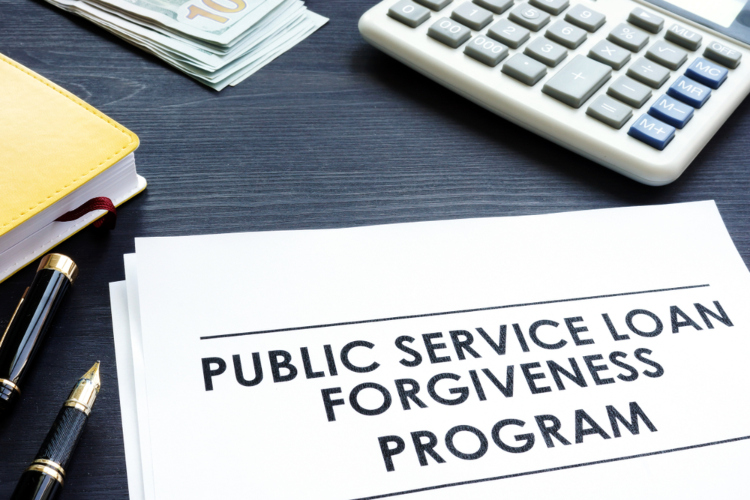Education Law
Fewer will qualify for student loan forgiveness under proposed new guidelines; will sanctuary jurisdictions be disqualified?

Proposed changes to the Public Service Loan Forgiveness program published Monday would revoke eligibility for borrowers working for nonprofit and government organizations deemed to have a “substantial illegal purpose,” a term with a broad definition. (Image from Shutterstock)
Proposed changes to the Public Service Loan Forgiveness program published Monday would revoke eligibility for borrowers working for nonprofit and government organizations deemed to have a “substantial illegal purpose,” a term with a broad definition.
The program offers loan forgiveness for those who make monthly payments on direct federal student loans for 10 years while working full time in qualified public service jobs. Among those participating in the program are lawyers working as prosecutors, public defenders and advocates for low-income communities.
Critics allege that the changes could kick some employers out of the program if their mission conflicts with the Trump administration’s agenda, Forbes reports.
A provision that cuts out employers that aid violations of federal immigration laws, for example, could be used to disqualify work for state and local governments that don’t cooperate in immigration enforcement, Forbes says, citing a blog post by the Institute for College Access & Success.
Other provisions will keep employers out of the program if they aid discrimination in violation of federal law or support terrorism. Prior news coverage points out that he Trump administration has previously described diversity and inclusion initiatives as illegal discrimination and has described anti-Israel protests as terrorism.
According to the guidelines, another activity with a “substantial illegal purpose” includes aiding castration or mutilation of transgender minors in violation of state and federal laws. An illegal purpose is also defined as violating state laws that prohibit, among other things, trespassing, disorderly conduct, vandalism and obstruction of highways.
The changes would apply to activities with a “substantial illegal purpose” that happen after July 1, 2026.
President Donald Trump had called for the changes in a March executive order that said the PSLF program should be focused on “on its original intent of encouraging Americans to enter essential public service roles, such as nursing, rather than activist groups.”
ABA employees are currently allowed to participate in the program as a result of a 2020 settlement.
The ABA objected to the proposed changes in a May letter to Linda McMahon, the secretary of the U.S. Department of Education.
Then-ABA President Bill Bay said changing the definition of qualified employers based on their activities “has no basis in the PSLF statute.” Nor does the law permit retroactive changes, he said. Bay also raised due process concerns about the process of determining which employers are now ineligible.
The Education Department says it would use a preponderance of the evidence standard in its eligibility determinations. Before any actions, employers would be notified and given a chance to respond.
“The overall design of the regulations—including advance notice, transparency around determinations, and employer recertification pathways—helps mitigate unexpected harm,” the Education Department said in a summary in the Federal Register.
The department also said the “substantial illegal purpose” standard would not be construed to revoke eligibility for employers based on their protected First Amendment rights.
The notice of changes published in the Federal Register followed public feedback, according to an Aug. 18 press release. The government is accepting further comments through Sept. 17.
See also:
These Public Service Loan Forgiveness applicants have seen their student debt erased
Write a letter to the editor, share a story tip or update, or report an error.

